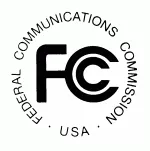
Filtered national broadband?
In a set of formal Comments filed with the Federal Communications Commission yesterday afternoon, a group of Berkman Center fellows, faculty, and friends argued that the FCC’s proposed free filtered national broadband would not be worthy of the name “Internet.” The comments, which fellows Wendy Seltzer, Geoff Goodell, and Stephen Schultze developed from a series of conversations about network neutrality at the Center, argue that network-level filtering fundamentally denies the nature of the Net, violating First Amendment rights and destroying incentives for innovation in and on the network.
Comments document, WT Docket No. 07-195
From the summary:
"The Internet is distinguished by its flexibility as a platform on which new services can be built with no pre-arrangement. While requiring filtering of known protocols in itself raises serious First Amendment conflicts, forcing the blocking of unknown or unrecognized traffic hampers both speech and innovation."
The Comment asserts that broadband is not broadcast. Instead, the team argues, “to characterize the Internet as a system for controlled “content” transmission is to undermine its salient characteristic as a participatory environment. The value of the Internet is created by the contributions of its participants. Some of these participants are large media outlets, but the vast majority of them are not. The Internet is not the same as broadcast, and the use of spectrum for Internet access is qualitatively, fundamentally different from the use of spectrum for one-way broadcasting.”
The commenters support roll-out of national broadband access, pointing out the value of such a network in breaking down the digital divide and providing important cultural spaces for “free speech, civic engagement, and business development.” But with filtering constraining the wireless broadband, the team fears it will undermine the very spirit of openness present in the network and “will tend toward stasis, allowing transit for what it already recognizes, but resisting new uses and applications."
Supporting a network that "anticipates the unexpected," commenters call upon the FCC to drop the filtering mandate from its conditions for auction of the AWS-3 spectrum.
***
More from some of the signatories: